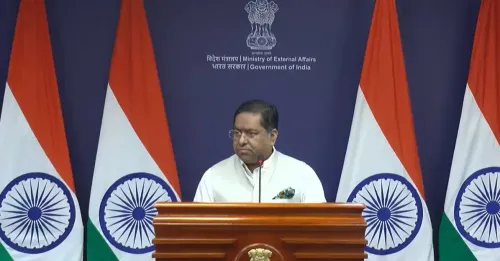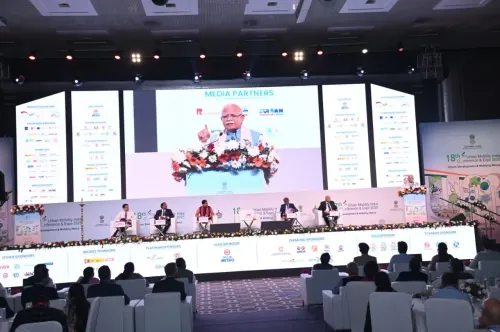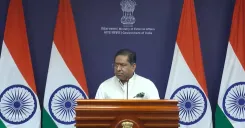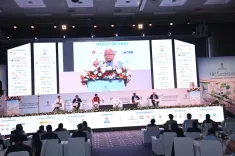MeT Bureau Anticipates Increased Precipitation in Jammu and Kashmir

Srinagar, Jan 1 (NationPress) A cold wave has firmly established itself in the Kashmir Valley as the Meteorological (MeT) bureau announced on Wednesday that light snowfall and rain are expected in Jammu and Kashmir over the next 24 hours.
According to a statement from the MeT bureau, "Two western disturbances (WD) are currently affecting J&K in quick succession starting from January 1. On January 1-2 (weak WD): Expect generally cloudy skies with light snow in scattered areas from the evening/night of January 1 to the morning of January 2. From January 3-6 (moderate WD): Conditions will remain generally cloudy with light to moderate rain in the plains of Jammu and snow at most locations in J&K, peaking from January 4 to 6 (afternoon/night). From January 7-10: Generally cloudy with dry weather expected."
The MeT bureau has also issued an advisory, indicating that due to fresh snowfall, sub-zero temperatures, and icy road conditions (both in the plains and higher elevations), tourists, travelers, and transporters should plan their journeys accordingly and heed the guidelines provided by the administration and traffic authorities.
"There is a possibility of heavy snowfall in isolated higher regions on January 4 and 5," noted the MeT office.
On Wednesday, Srinagar recorded a minimum temperature of -4.4°C, Gulmarg dropped to -8.8°C, and Pahalgam noted -7.6°C.
Jammu city experienced a low of 8.4°C, while Katra recorded 5.7°C, Batote 2.5°C, Banihal -1.3°C, and Bhaderwah -0.4°C as their respective lowest temperatures for the night.
Currently, Dal Lake in Srinagar and all other lakes in the Valley are partially frozen.
The intense winter cold period lasting 40 days commenced on December 21 and is set to conclude on January 30.
The health department has released an advisory urging people to protect themselves against prolonged exposure to severe cold. Special warnings have been issued for children and the elderly to ensure they stay warm during the frigid winter days and nights.
The head of the cardiology department at Government Medical College Srinagar has stated that international studies have linked winter fatalities to the constriction of blood vessels, which can lead to myocardial infarctions, resulting in heart attacks and heart failure. Respiratory issues combined with constricted blood vessels are significant contributors to thousands of deaths during the winter months worldwide.









